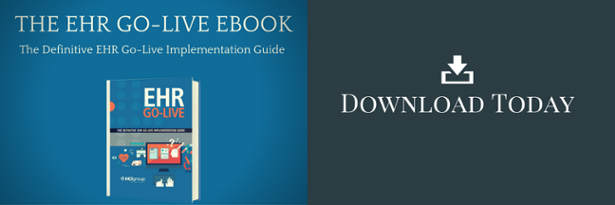IT Leaders in the NHS | Interview with Paul Woolman

 Dr. Paul Woolman is a health informatics consultant and is the UK representative on the International Medical Informatics Association. He is currently working as manager of the Information Services department in NHS Forth Valley and with Edinburgh University working on a new Masters programme in Global eHealth. Previously, he worked in Scottish Government, the NHS and academia. He is a fellow of the BCS, The Chartered Institute for IT. Paul is on the board of several companies. He is an expert in interoperability and informatics standards.
Dr. Paul Woolman is a health informatics consultant and is the UK representative on the International Medical Informatics Association. He is currently working as manager of the Information Services department in NHS Forth Valley and with Edinburgh University working on a new Masters programme in Global eHealth. Previously, he worked in Scottish Government, the NHS and academia. He is a fellow of the BCS, The Chartered Institute for IT. Paul is on the board of several companies. He is an expert in interoperability and informatics standards.
The HCI Group spoke to Paul about the upcoming BCS Health Scotland Conference and the future of eHealth in Scotland.
What is unique about the BCS conference?
BCS Health Scotland is a group of enthusiasts and professionals that has been around for many years. I was asked to step in and chair the group about eight years ago and one of the first things I did was to involve a number of leading health service and company people inside and outside of healthcare IT. Additionally, I setup a strategy plan for what the professional body ought to be doing in the world of healthcare IT. Part of that plan was to put on an event once a year to bring together the people involved in NHS IT and the different commercial suppliers. These suppliers are keen to engage with those professionals and also the government policy makers and a sprinkling of academics.
In the first two or three years, we tried to create a social engagement atmosphere between the suppliers and the NHS senior managers. In the last two or three years, however, we’ve deliberately gone out to bring in the academics with a current research stream. We realised that there is no forum in the UK for academics to publicise their current research in health informatics. I’ve been helping with the HC conference for BCS which is the big thing in areas between Birmingham and London. Those conferences are very much focused on the supplier exhibition side and have left out the academics. We wanted to bring back an academic stream and we’ve got five of the top universities in Scotland who organise that. The universities call for papers and there is a publication of conference proceedings. This in turn brings in the current new developments which interests both the suppliers and NHS managers.
What is the focus of the event this year?
We always have several themes running in parallel. One theme this year is ‘Clinical Quality and eHealth’. There’s a big national project going on in Scotland called ‘improving patient flow’ and it’s about the flow of patients through the hospital setting to try and speed up their journey. The Institute of Healthcare Optimisation from Boston, USA are a partner in that project. Eugene Litvak is the big name and he’s going to give a talk at the event. So, part of that is about using business analytics, using data to help understand the stages of the patient journey and understand where the limitations in flow are. We are looking for ways to remove bottlenecks and speed up the time for different things to happen. For example; requests for an x-ray, the time the patient has left the ward to have it done and the results are reported back. How long does that take? Could you cut half a day off the patient’s stay by doing something cleverer? The big thing in business analytics is producing real time dashboards of processes to help managers improve the systems they manage whether that’s A&E; Nursing Quality; Ward Beds and so forth. We have a session on dashboards with demos from some of the exciting innovations going on in NHS boards.
How is eHealth different in Scotland to England and Wales?
What we do in Scotland in eHealth is quite different from what’s happened under the national programme in England. In many respects we have a lot in common with Wales, but the way we do things is not in common. Wales has centralised their delivery of health informatics by creating a monster national organisation. All the people employed in different hospitals and primary care sectors are all now under one organisation. In Scotland, we’ve really devolved things down to individual boards, and individual Trusts, if you like. We’ve given the money from government to those individual Trusts to just get on with it.
We also have collaborative decision making. These may be national or they may be regional solutions to any particular problem. National if it makes sense, but quite often it’s just a regional collaboration. And so it’s quite different from the approach in Wales, although the solutions end up fairly similar; Wales have a clinical portal and we have clinical portals as a main way to access information for clinicians. The Welsh clinical gateway is a copy of our SCI Gateway. Their emphasis is on a small number of GP suppliers as the main GP supplier base and the sort of strong integration between them and the acute systems. It’s exactly the same in Scotland; the GPs are very much integrated to the whole healthcare IT infrastructure. We’re quite different from England where everyone is now competing with each other.
What does the future hold for eHealth in Scotland?
Scotland has a very strong focus on improving clinical quality. A Government quality strategy was launched a few years ago and it’s still part of our 2020 vision. A lot of the steps people are taking are driven by that clinical quality strategy. We’ve taken a lot of lessons from the IHI approach from the States about how to improve quality, and of course clinical quality and eHealth is one of the streams we’ve got in the conference and to some extent has been for several years now.
I think the other big movement going on here is the world of telehealth which almost transformed into digital health. We’ve set up this new digital health institute which is like a vehicle to encourage start-up companies in the digital health space. There are lots of different programmes and projects going on there and there’s a lot of company involvement, small scale Scottish SMEs. There’s a lot of government funding for that, a lot of technology strategy board funding and they are strongly engaged in European projects. They again, are featured strongly in the programme for the conference, so that’s a fairly big new thing up here.
The other big thing is patient portals - we featured those several years running in our conference and now it seems to be government strategy, so all boards are looking at how to implement those ideas. It’s partly driven of course by the EU directive which includes a patient portal component, and partly because it just makes sense. So, ideas first heard in our conference seem to often emerge as policy or big implementation projects in future years. That’s the way it should be; a sounding board for new innovations.

